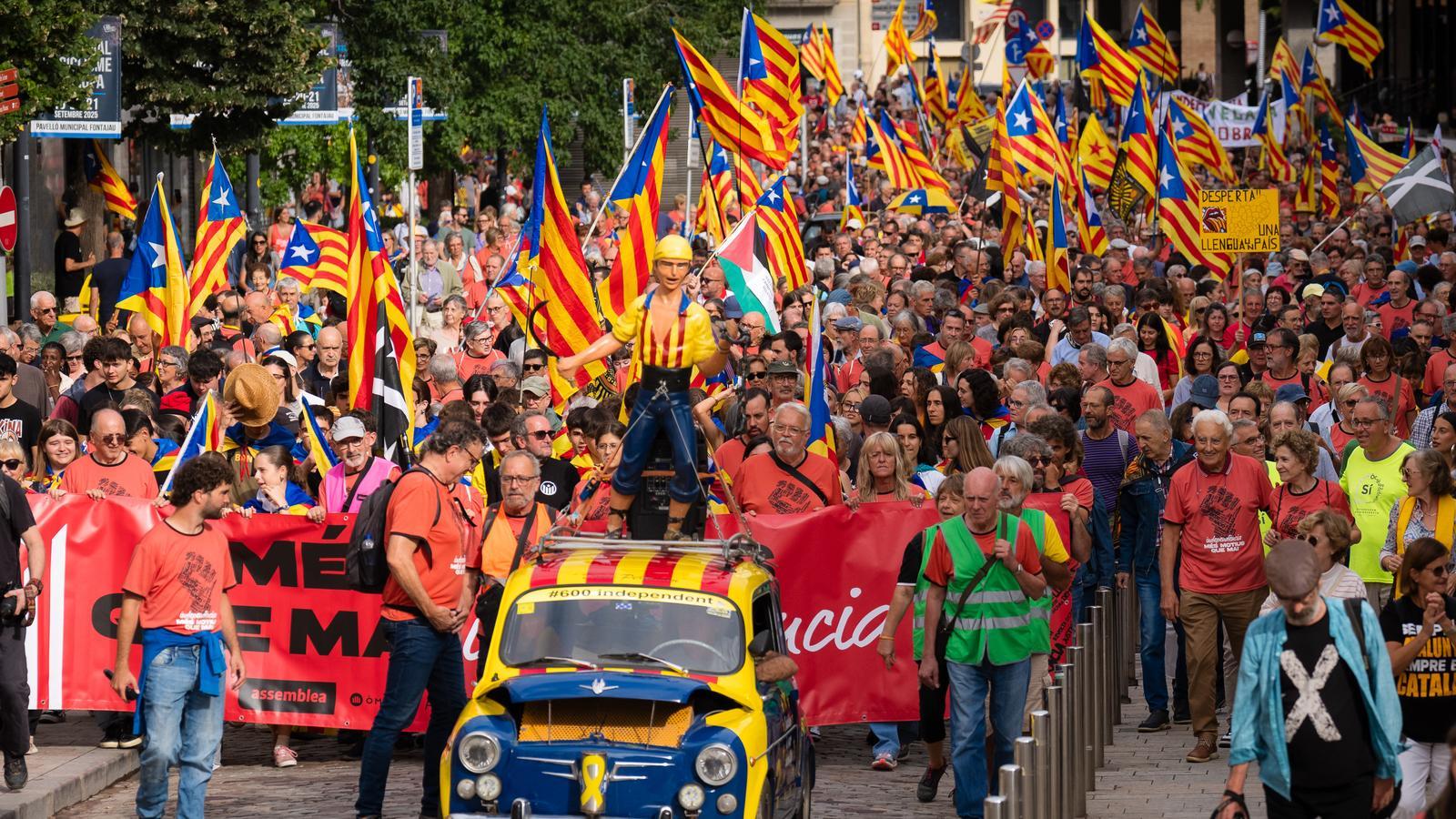

It's a bad omen that, along with the dwindling turnout—41,500 protesters across Catalonia, according to official figures—one of the distinguishing features of this year's Diada revolved around the leader of the Catalan Alliance, Silvia Orriols, who, whether applauded or booed, managed to achieve the level of prominence she desired. And she was lucky enough to have the rain that dampened everything. The threat of the far right is, without a doubt, a significant concern, both in Catalonia and in Spain and throughout Europe. But precisely because it is disturbing, it cannot be ignored or given wings.
The smart thing would be—is—to address the popular discontent that the far right demagogically capitalizes on with serious and feasible responses, without false populist promises. What are the issues that the Alliance and Vox are demagogically exploiting? The population increase resulting from a new migratory flow, the resulting strain on basic social services—education, healthcare, poverty alleviation, etc.—, the decline in the social use of Catalan—in the case of Vox, the alleged discrimination against Spanish in schools, a fight in which it has the support of the courts, as has been seen once again—with Islamophobia as its banner. These are not minor or easy issues.
Faced with these realities, we must be clear: there is no magic wand to solve challenges of this magnitude, which, moreover, are not exclusive to Catalonia. It is important to explain, from the outset, that under no circumstances can complex social, economic, or identity issues like these be addressed by looking for easy culprits, often those who have no way of defending themselves. We all still have fairly recent memories of historical barbarities against groups turned into scapegoats. It will now be 50 years since the death of dictator Franco, and this September marks 80 years since the end of World War II and the Holocaust. We should not forget.
Catalonia, within a Europe that is teetering on the brink, has a complex and plural society that, thanks to a democratic regime half a century old, demands necessary balance, pacts, and consensus if it is to continue advancing in sovereignty and progress. Turning debates into polarized struggles between good and evil always ends badly. Social cohesion, based on preserving coexistence as its main treasure, must be the norm. A norm that Alianza and Vox flout every day, with inflammatory statements, turning unknown citizens and close neighbors into mortal enemies. This attitude must be openly denounced. In this sense, the climate that is establishing itself in Spain is another bad omen.
But beyond denouncing the demagoguery of the far right, we must engage in critical sectoral debates—immigration, language, social services, but also tourism, green energy, mobility, wealth creation—providing concrete policies and educating about the difficulties and the need to respect everyone, regardless of their opinions. It doesn't matter what happened with the Process, when the harsh and painful learning was that we must read social reality well if we truly want to transform it. Political realism is a necessary traveling companion. Ideals are worked on day by day, conversation by conversation, agreement by agreement. And those who sow discord are part of the problem.
